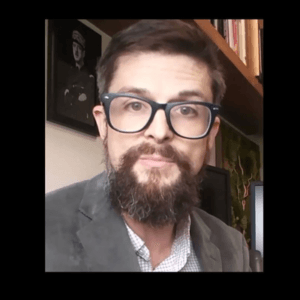Matthew Johnson is a full professor of Psychiatry and Behavioral Science at the Johns Hopkins School of Medicine. He received his bachelor of science in psychology from Eastern Oregon University in 1999 and his doctorate from the University of Vermont in 2004 in experimental pharmacology/behavioral pharmacology.
The underlying theme of Dr. Johnson’s career has been the understanding of human behavioral change, particularly when it comes to addiction recovery. He studies the decision-making that underlies drug addiction and he conducts studies to understand the behavioral and psychological effects of psychoactive drugs in humans. Regarding the latter, he has studied drugs such as psilocybin, salvinorin A, cocaine, methamphetamine, caffeine, and nicotine.
Dr. Johnson has published over 120 scientific articles and chapters, including over 50 pertaining to psychedelics. He has received continuous funding as Principal Investigator on grants from the National Institutes of Health (NIH) for over a decade. He has also served as a reviewer for over 75 different peer-reviewed scientific journals and has been a guest editor for special issues on psychedelics for both the International Review of Psychiatry and Frontiers in Psychiatry. Dr. Johnson has served as a reviewer for NIH for over 10 years, including a current appointment as a standing member of the Addiction Risks and Mechanisms study section.
Working with psychedelics since 2004, Dr. Johnson published psychedelic safety guidelines in 2008, helping to resurrect psychedelic research. He published the first research on the psychedelic treatment of tobacco addiction in 20141 and the largest study of psilocybin in treating cancer distress in 2016.2
Dr. Johnson is the lead author of a landmark 2018 paper published in Neuropharmacology which makes the case for reclassifying psilocybin from schedule I to schedule IV under the US Controlled Substances Act.3 His recommendation for rescheduling psilocybin is contingent on successful phase 3 clinical trials using psilocybin-assisted therapy for treatment-resistant depression which are in progress. In the paper, Dr. Johnson states unequivocally that:
…at this point the data suggest that the potential therapeutic benefits of psilocybin-assisted therapy are real, and of potential medical and public health significance.
Outside of psychedelics, Dr. Johnson is recognized for his research in psychopharmacology, behavioral pharmacology, behavior analysis, and behavioral economics. He has conducted seminal and widely cited research applying behavioral economic principles such as delay discounting and demand analysis to decision making within addiction, drug consumption, and risk behavior.
Dr. Johnson was the 2019 President of the Psychopharmacology and Substance Abuse Division of the American Psychological Association and is the current President of the International Society for Research on Psychedelics.
A list of Dr. Johnson’s scientific papers is found here on Google Scholar.

